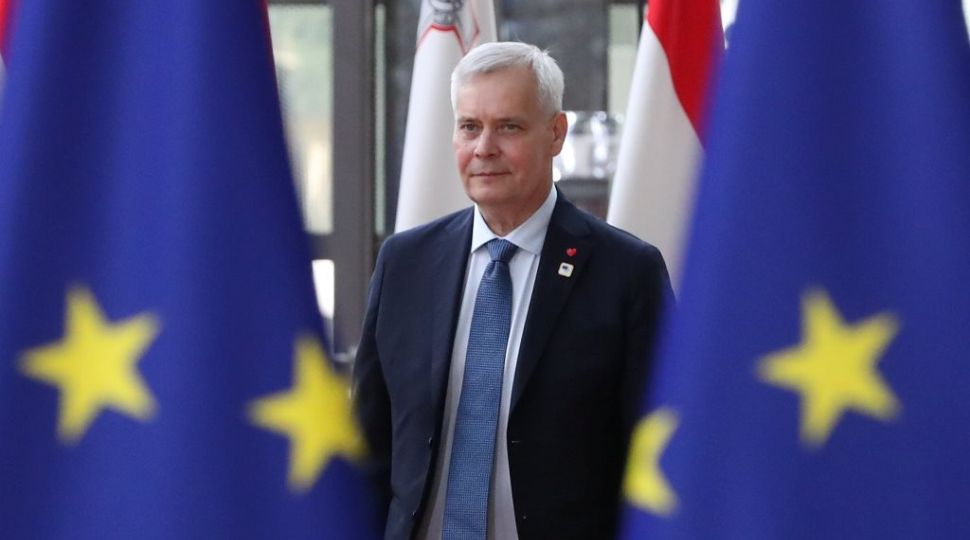Budgetary Sanctions as a Mechanism to Protect the Rule of Law in the EU
The EC states that breaches of the rule of law in Member States, with those endangering the independence of the judiciary in particular, can have a negative impact on sound financial management of EU funds. Therefore, it proposes a mechanism to suspend disbursements from the EU budget when such violations are identified. The mechanism would complement existing regulations that grant the EC broad powers to oversee the proper implementation of the EU budget. At present, Member State administrations must fulfil a number of conditions that confirm their ability to manage EU funds properly and to prevent fraud. In the case of irregularities, the EC has the right to withhold payment of funds. The essence of the new mechanism is the inclusion of a state’s justice system within the remit of the assessment performed by the EC.
The proposal was presented against the background of intense debate among the Member States and EU institutions on the rule of law. At the EC’s request and for the first time, a procedure provided for in the Treaty on the European Union (TEU) concerning breaches of the Union’s fundamental values was initiated against Poland (December 2017). The European Parliament, in turn, launched the same procedure against Hungary (September 2018). The chamber also adopted resolutions expressing concern over the condition of the rule of law in both countries, as well as in Malta (November 2017) and Slovakia (April 2018). In addition, the EC called on Romania to reconsider planned changes in the area of justice (January 2018).[1]
The Commission Proposal
Published on 2 May, the proposal in the form of a regulation spells out the details of the mechanism and would strengthen the role of the EC as the guardian of the rule of law in Member States. If an institution finds deficiencies in the practice of the rule of law that have the potential of a loss of EU finances, it can propose to the EU Council to take measures to discipline the state in question. The EC would play a key role in the procedure because if the Council does not reject the measures proposed by it by a qualified majority (reverse qualified majority) within one month, they will enter into force. The EC emphasized that the addressee of the potential sanctions would be the government, not individuals or organisations that benefit from the funds. The draft regulation stipulates that suspension of transfers from the EU budget does not exempt Member State authorities from the obligation to provide funds to beneficiaries, meaning national budgets would have to carry the charge.
The draft regulation does not, however, provide precisely defined criteria for the assessment of the rule of law, rather cites a broad set of principles (including “separation of powers” and “effective judicial protection by independent courts”) as interpreted by judgments of the EU Court of Justice. In addition to the latter, the EC, when evaluating rule-of-law shortcomings in a Member State, may refer to reports of the European Court of Auditors (ECA) and the opinions of other institutions, such as Council of Europe bodies.
Objections and Opinions on the Project
The Commission’s proposal has gained support from France, Netherlands, and Germany. It has been criticized by Poland, Hungary, and Romania. The main line of criticism is that there is a lack of clear criteria for assessing the state of the rule of law in a country and an excess of competences granted to the Commission within the procedure.
Similar objections were included in an opinion by the ECA issued in July. It pointed out that the EC would be the sole institution with the right to determine violations of the rule of law principle based merely on “reasonable” grounds. In the ECA’s opinion, the Commission has granted itself the capacity to arbitrarily assess those grounds in every single case. The ECA recommended creating a universal set of criteria to enable both determining a breach of the rule of law as well as proper sanctions. These criteria could be based on the EU acquis, including the requirements candidate countries must now meet before becoming EU members. The ECA assessed that the criteria developed under the Cooperation and Verification Mechanism (CVM) for Bulgaria and Romania could also be useful because they are aimed at supporting and monitoring reforms in the judiciary and in combating corruption and organised crime.
The ECA expresses concerns with the EC’s wide-ranging competences not only in the sanctioning procedure but also with how it might remove such measures. The regulation does not provide a deadline for the removal of sanctions once the violation has been rectified. The concern is that the lack of a precise timeframe could be used as an instrument of political pressure on states. In addition, the EC’s project does not give any role to the European Parliament beyond informing it of the steps taken.
The ECA noted that the EC did not carry out an assessment of the financial consequences of the proposed sanctions. Therefore, the potential scale and consequences of any penalties imposed on a Member State in the event of a finding of a breach of the rule of law are not clear. Sanctions may lead to instability in the public finances of the punished country. There are also doubts about the effect of the proposed solutions. Even if a sanctioned government replaces the frozen EU finances with funds from its own budget, cuts to the national budget or a larger deficit as a result may mean the sanctions ultimately hit final beneficiaries, i.e., the citizens. The need to refine the sanctioning mechanism to protect final beneficiaries from bearing responsibility for a state’s violation of the rule of law was also underlined by the European Parliament.
Conclusions
The EC initiative can be interpreted as a search for a way to effectively discipline countries that, in its opinion, violate the rule of law. The chances of using the procedure under Art. 7 (TEU) for this purpose are illusory because of the multistage course of proceedings and need for unanimous consent of the Member States (without the target state) to impose sanctions.
Comments on the draft regulation as expressed so far by some Member States, the ECA, and the European Parliament do not concern the substance of the proposal (imposing sanctions on states that violate the rule of law) but rather contain serious allegations about the mechanisms of implementation. Given these concerns, the proposal likely will be adopted only after it is modified. The first change is that it must be supplemented with a closed catalogue of criteria for the assessment of the rule of law based on practices already available in the EU, as indicated by the ECA. It can be assumed that several Member States will propose strengthening the role of the EU Council in the decision-making process. This could happen if they give up the reverse qualified majority rule (passive) for activation of sanctions and make it conditional on approval by a qualified majority (active).
Since the regulation is to enter into force together with the MFF in 2021, there may be legal disputes between the EC and Member States regarding the imposition of sanctions for violations occurring before that date.
The issue of the effects of sanctions on the citizens of a targeted Member State is highly important. It is likely that if EU payments are frozen, the government will not want to or cannot replace the funds from its national budget, which in turn would hit citizens and public organisations, i.e., the final beneficiaries of most of these funds. Budgetary sanctions therefore may be a deficient instrument to enforce compliance with the rule of law in Member States. On the one hand, the threat of sanctions alone may discourage governments from acting against European values, while on the other hand, their application may result in increased Eurosceptic attitudes and/or strengthening a government that disputes it is violating the rule of law.
[1] J. Pieńkowski, “Weakening of the Anti-corruption System in Romania,” PISM Bulletin, No. 118 (1189), 29 August 2018, www.pism.pl.






